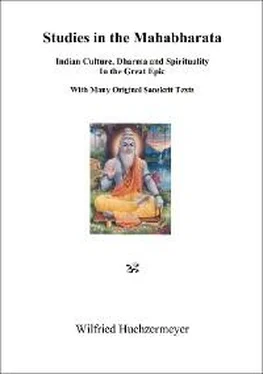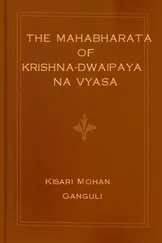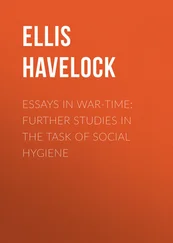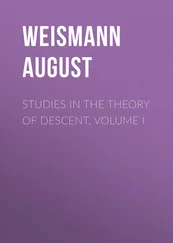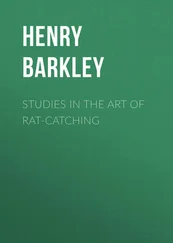Wilfried Huchzermeyer
Studies in the Mahabharata
Indian Culture, Dharma and Spirituality
In the Great Epic
With Many Original Sanskrit Texts
edition sawitri
Karlsruhe
Verlag W. Huchzermeyer
Lessingstraße 64
D-76135 Karlsruhe
sawitri@t-online.de
www.edition-sawitri.de
1st eBook Edition 2018
ISBN 978-3-931172-44-2
© 2018 edition sawitri – Verlag W. Huchzermeyer, Karlsruhe
All rights reserved
Contents
Preface Preface The present book is based on my dissertation titled Essential Features of Indian Culture and Spirituality, As Presented in the Mahābhārata, submitted to the University of Pune in 1985 under the guidance of Dr. S.D. Laddu. The text has been newly edited for the purpose of this title; several chapters were omitted and numerous passages have been rewritten. I have also given my own translations of all the Sanskrit quotations in the text. In the Appendix, I have added a summary of the complete action in the Mahābhārata. Readers who are not familiar with the epic are recommended to read this summary at first. Moreover, I also present some of the more important original Sanskrit texts in full length.1 In this way, the whole book is a new creation which aims at presenting the original content in a more interesting and accessible form. Wilfried Huchzermeyer Whenever this is the case, English translations are marked “SKR” at the end and the respective footnote refers to the Appendix.
Introduction
1. Arjuna’s Marriages
Ulūpī
Urvaśī
Citrāṅgadā
Subhadrā
2. Śrī Kṛṣṇa – The Ritual of Departure
Kṛṣṇa in the Ādiparvan
The Ritual of Departure
3. Śrī Kṛṣṇa – Guru and Leader of the Pāṇḍavas
Kṛṣṇa’s Dialogue with Yudhiṣṭhira
The Execution of Kṛṣṇa’s Plans
Śiśupāla’s Intervention
4. Psychological, Philosophical and Legal Aspects of the Dice Game
Preliminary Events
Śakuni’s Role
The Game Starts
Nala’s Dice Game
The Deeper Cause of Yudhiṣthira’s Losses
Draupadī’s Battle
Bhīṣma’s Commentary and Bhīma’s Fury
Vikarṇa’s Pleading for Draupadī
The Miracle
Vidura’s Vain Intervention
Draupadī’s New Appeal and Bhīṣma’s Response
Duryodhana’s Interjection
Bhīma’s Response
Dhṛtarāṣṭra’s Intervention
Karṇa’s Commentary and Bhīma’s Reaction
Summary
Epilogue – Kṛṣṇa’s Commentary
5. The Mahābhārata’s Synthesis of Revenge and Forgiveness
Draupadī’s Opening of the Debate
Prahlāda’s Teaching
Yudhiṣṭhira’s Rebuttal
Draupadī’s Criticism of dharma
Draupadī’s Philosophy of Divine Determinism
Dharma for the Sake of Itself
Draupadī’s Pleading for Dynamic Action
Bhīma’s Pleading and Yudhiṣṭhira’s Rebuttal
Conclusion
6. Saints Sages and Ascetics – The Creative Function of Curses and Blessings
Saramā Cursing Janamejaya
The Clash of Uttaṅka and Pauśya
King Parikṣit and Śṛṅgin’s Curse
Bhṛgu cursing Agni
A Brāhmin Cursing Ruru
Kadrū and Vinatā
Garuḍa and the Vālakhilyas
The Modification of Kadrū’s Curse and Further Events
7. Jaratkāru and Agastya
I - Jaratkāru
Jaratkāru Meeting His Forefathers
Jaratkāru’s Brief Marriage
II – Agastya and Lopāmudrā
8. Aṇīmāṇḍavya and Durvāsas
I - Aṇīmāṇḍavya
II – Durvāsas and Kuntī
Supernatural Conception
Durvāsas and Mudgala
Durvāsas and Kṛṣṇa
Durvāsas, Kṛṣṇa and the Pāṇḍavas
9. Saṁvarta
King Marutta and Nārada’s advice
Marutta meeting Saṁvarta
Indra’s Counteraction and Saṁvarta’s Defence
10. Vasiṣṭha and Viśvāmitra
Vasiṣṭha Āpava
Vasiṣṭha Suvarcasa
Vasiṣṭha Maitrāvaruṇi and Viśvāmitra
King Kalmāṣapāda
11. Ṛśyaśṛṅga, Yavakrīta and the Brāhmin Saint
I – Ṛśyaśṛṅga
II - Yavakrīta
III – The Nameless Brāhmin Saint
12. Sanatsujāta
Kriyā Yoga
The Sanatsujātīya
“Distraction is Death”
On the Veda
13. Śuka
Śuka’s Birth
At the Court of King Janaka
Nārada’s Talk on Sanatkumāra’s Wisdom
Śuka’s Path to Complete Liberation
Appendix I - Sanskrit Original Texts
1 – Draupadī in the Assembly Hall
2 – Vikarṇa’s speech
3 – The Miracle of endless skirts
4 – Kṛṣṇa’s commentary on the dice game
5 – Yudhiṣṭhira’s sermon on forgiveness
6 – Draupadī’s philosophy of divine determinism
7 - Yudhiṣṭhira on dharma for its own sake
8 – Draupadī’s rejection of fatalism and accidentalism
9 – Śuka’s Life
Appendix II - A Summary of the Mahābhārata
I – The Main Action
II – The Structure
Literature
Preface
The present book is based on my dissertation titled Essential Features of Indian Culture and Spirituality, As Presented in the Mahābhārata, submitted to the University of Pune in 1985 under the guidance of Dr. S.D. Laddu. The text has been newly edited for the purpose of this title; several chapters were omitted and numerous passages have been rewritten. I have also given my own translations of all the Sanskrit quotations in the text.
In the Appendix, I have added a summary of the complete action in the Mahābhārata. Readers who are not familiar with the epic are recommended to read this summary at first. Moreover, I also present some of the more important original Sanskrit texts in full length.1 In this way, the whole book is a new creation which aims at presenting the original content in a more interesting and accessible form.
Wilfried Huchzermeyer
Whenever this is the case, English translations are marked “SKR” at the end and the respective footnote refers to the Appendix.
Introduction
The Mahabharata, although neither the greatest nor the richest masterpiece of the secular literature of India, is at the same time its most considerable and important body of poetry. Being so, it is the pivot on which the history of Sanskrit literature and incidentally the history of Aryan civilisation in India, must perforce turn.2
Sri Aurobindo
Whether we realize it nor not, it remains a fact that we in India still stand under the spell of the Mahābhārata. There is many a different strand that is woven in the thread of our civilization, reaching back into hoary antiquity. Amidst the deepest of them there is more than one that is drawn originally from the ancient Bhāratavarṣa and the Sanskrit literature. And well in the centre of this vast pile of Sanskrit literature stands this monumental book of divine inspiration, unapproachable and far removed from possibilities of human competition.3
V.S. Sukthankar
Vyasa’s epic is a mirror in which the Indian sees himself undeceived.4
P. Lal
With the Greeks the dominant passion was the conscious quest of ideal beauty: with the Indians it has invariably been the quest of ideal life.5
V.S. Sukthankar
The Mahābhārata is one of the most impressive creations of the Indian mind. If it cannot compare with the Upaniṣads in philosophic depth, with Kālidāsa’s poetry in refinement and splendour, it yet has a quality of its own and is unequalled in its comprehensiveness, the mass of material offered and the variety of subjects discussed – ranging from history, philosophy and law to yoga, spirituality and psychology.
Indeed, the volume of knowledge expounded in this epic is so immense that most critics have rightly assumed that it can hardly be the product of a single brain howsoever gifted. Some great scholars of the Mahābhārata such as a modern translator of the text, J.A.B. van Buitenen, and India’s great yogi-poet Sri Aurobindo, agree that the Mahābhārata was originally a smaller epic of about 24,000 verses, and that this nucleus was subsequently enhanced by an endless series of later additions made by authors who deemed Vyāsa’s genial creation a fit vehicle for their own less inspired poetic expressions, philosophic ideas, dogmatic teachings and religious beliefs.
Читать дальше
